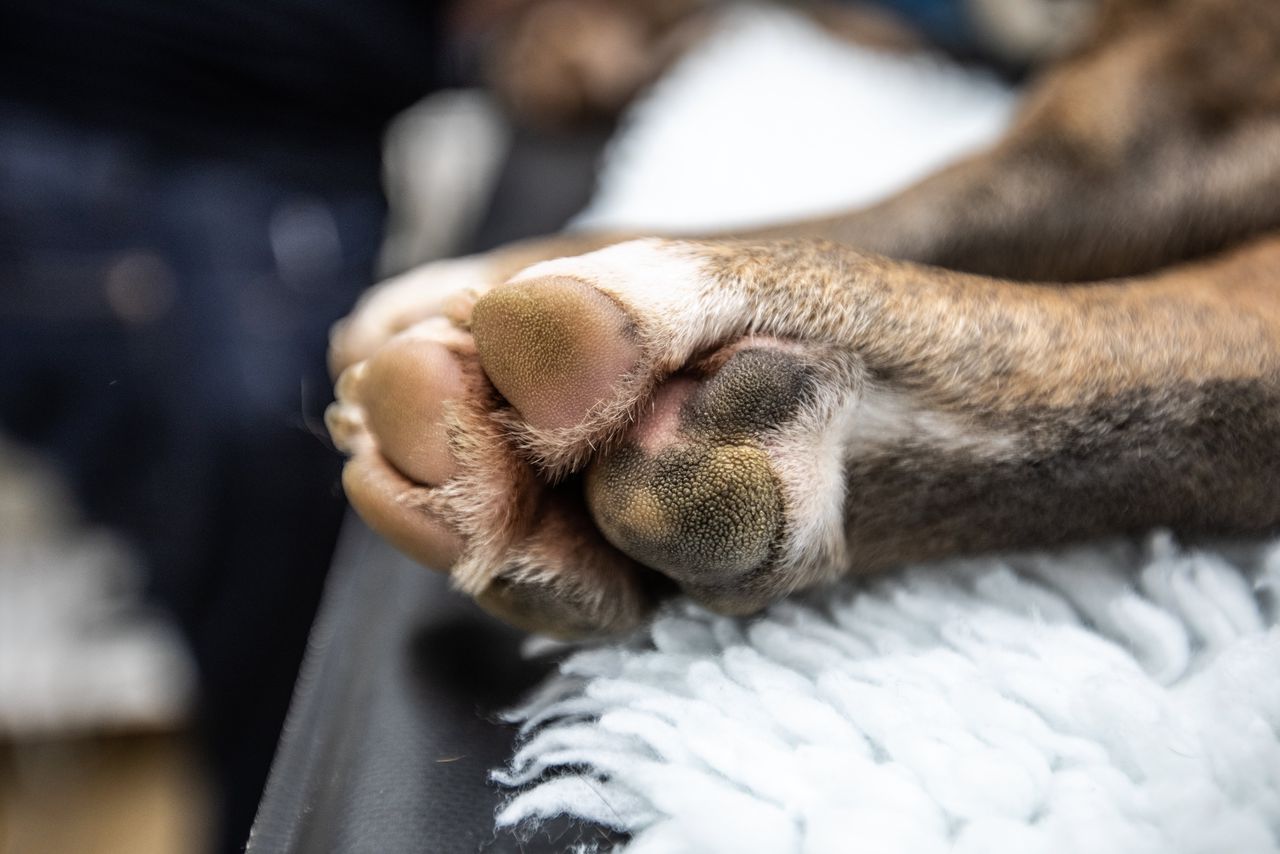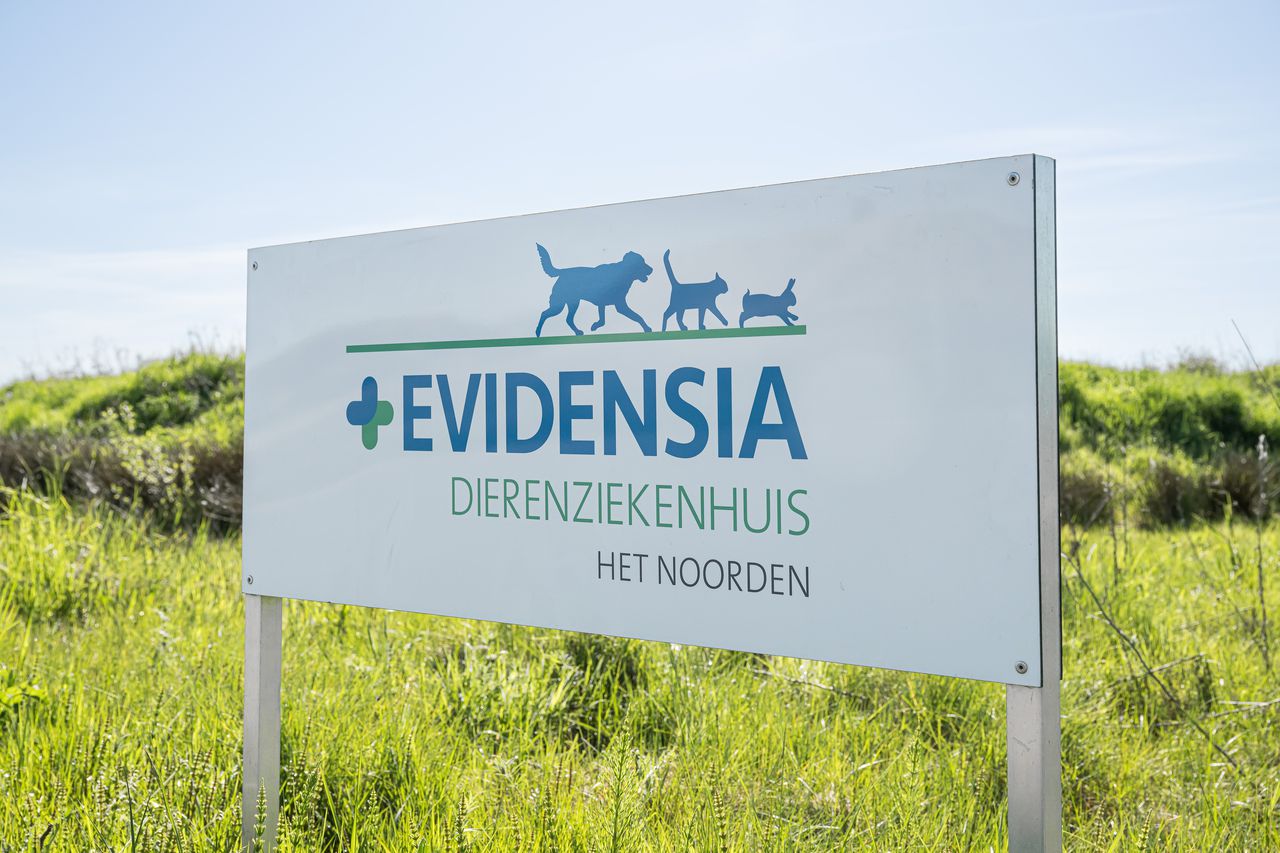Veterinarians are fed up with chasing high turnover at commercial chain Evidensia, dozens of clinics closed due to exodus
%2Fs3%2Fstatic.nrc.nl%2Fwp-content%2Fuploads%2F2025%2F05%2F29204025%2Fdata132988338-fa43d1.jpg&w=1920&q=100)
IVC Evidensia, the largest investor in Dutch veterinary practices, has run into problems due to an exodus of staff. Due to a shortage of people, the chain has had to close 24 of the more than three hundred acquired clinics in the Netherlands, the vast majority of which in the past year, the company confirmed when asked.
Research by NRC , based on internal documents and interviews with over twenty people involved, shows that hundreds of employees have recently left due to dissatisfaction with the policy of the commercial chain. Veterinarians, their assistants and other employees often feel pressured by Evidensia to generate as much turnover as possible. For example, they were required to prescribe a more expensive version of certain medicines and charge much higher costs for writing a prescription.
Evidensia executives also urged veterinarians to perform more X-rays and refer more clients to the chain's own animal hospitals. Such substantive interference in the veterinarian's work violates the industry's code of ethics.
For more than a year, there has been a lot of dissatisfaction in the company about the chain's working methods, according to internal documents. "For some time now, we have been receiving signals about the unrest within the company," wrote the chairman of the Works Council to all employees in January 2024. "The unrest described is very diverse: from complaints about excessive workload, poor communication to incomprehension about the price increases and so on."
'We don't want it that way'According to those involved, the internal resistance has not diminished since then. "Not one veterinarian is happy with the way things are going now," says veterinarian Paul Mandigers, who speaks to NRC as chairman of the Companion Veterinarians cluster at the professional organization KNMvD. He also works as a veterinary neurologist at the Evidensia Animal Hospital in Arnhem. "There is a lot of turnover, I hear that from the work floor. Veterinarians and employees who see what happens in practice and say: that is not how we want it."
Many other people involved spoke to NRC on condition of anonymity because they are bound by confidentiality or have contractually agreed that they may not make negative statements about their former employer. "You don't become a vet for the money," says a vet who sold his practice to Evidensia a few years ago but decided to leave last year. "There is a group that says: 'I have so much trouble with this, I'm quitting.'"
IVC Evidensia acknowledges in a response that the working method offers "room for improvement" and states that action is now being taken. "Following feedback from our employees, we are implementing major changes in our operational structure and management, including greater involvement of veterinarians in management positions," a spokesperson writes. Earlier this month, the management of the Dutch branch was also replaced.
Less autonomyThe arrival of a handful of commercial investors on the veterinary market has led to much discussion in recent years, particularly because of the higher bills that many pet owners have to pay . The regulator ACM (Consumer & Markets Authority) is currently investigating whether consumers are still treated fairly at the vet and is also looking at the "business operations of healthcare providers".
Of these providers, the British-Swedish IVC Evidensia – owned by investment funds EQT and Silver Lake and food giant Nestlé – is by far the largest. Since 2016, the chain has acquired more than three hundred existing veterinary practices, and now employs more than three thousand people. Its largest competitor, AniCura, has acquired more than a hundred practices.
The resistance among Evidensia employees is not limited to the higher rates they have to charge their clients. Evidensia restricted their autonomy, say departed veterinarians, for example by imposing which brand of medicine or pet food they had to prescribe to clients, or by prohibiting them from giving discounts to clients who had to visit more often with their pets. According to Evidensia's guidelines, they also sometimes had to perform procedures for which there seemed to be no medical necessity.

For example, dogs must be given a standard blood test of 100 euros before undergoing anesthesia, although according to many veterinarians involved, this is usually not necessary. The same applies to the mandatory gas anesthesia when sterilizing cats. "A typical sterilization also works well with anesthesia by means of an injection, which is much cheaper," says veterinarian Maikel Koot from 't Zandt in Groningen, who worked in an Evidensia clinic but now runs his own practice. "The result is that this procedure costs me 125 euros and at another private practice here 110 euros. At Evidensia you pay double."
A regional director emailed veterinarians that he would like to see referrals to the Evidensia Animal Hospital “this week”
Evidensia denies that it imposes certain actions on veterinarians. “All clinical decisions remain, as always, the responsibility of the attending veterinarian,” the spokesperson writes. “The guidelines support both simple (and therefore cheaper) methods and more advanced (and therefore more expensive) methods, depending on what is necessary in the specific situation.”
More often influence in treatment roomYet Evidensia's influence increasingly penetrated into the treatment room. Internal documents show that last October, veterinarians in the south of the country were called upon to refer more clients to an Evidensia 'animal hospital', where treatment is more expensive than in a regular practice. A regional director emailed dozens of veterinarians that he would "like to see a few more referrals this week" from pet owners to the Evidensia Animal Hospital in Geldrop.
"At the moment, we have temporarily more extensive endoscopy [internal camera examination] options at the EDZ Zuidoost Brabant," he wrote. "In order to be able to test and use these temporary options even better, we would like to ask you to contact us directly for every indication for endoscopy in the coming days."
Evidensia wrote in a response that this call was only intended “to ensure that veterinarians are aware that animals with complaints can be referred to specialist facilities”.
A manager in Limburg urged veterinarians to take X-rays of pets more often, even if it was medically unnecessary
Earlier this year, NRC revealed that Evidensia had secretly promised its veterinarians a bonus if they referred more often to an Evidensia animal hospital. Shortly after publication in the newspaper, this action was stopped .
In Limburg, too, a regional manager interfered with the work of veterinarians. He urged them in one of his practices to take X-rays of pets more often, even if it was not medically necessary, says a veterinarian involved. "We then said: 'sorry, we are not going to do that'. We take photos when we think it is necessary. He was simply pushing for more turnover."
Two other parties involved confirm the call to take more X-rays, an action that costs more than 100 euros for the first recording. Evidensia does not respond to questions about this in detail.
Calling back customersMany departing veterinarians also felt uncomfortable with the so-called “volume projects,” campaigns developed by Evidensia’s marketing department with the aim of increasing the number of appointments at the clinics. For example, in 2023, clinics nationwide were instructed to approach customers who owned unvaccinated pets or had skipped a booster vaccination, in the hope of getting them to come to the clinic anyway. First by email, then by phone.
Management kept track of how many clients each practice had called back via the central computer system. Practices that did not cooperate sufficiently were addressed. Such projects are "intended to increase turnover through campaigns [...]", the chairman of Evidensia's works council wrote to colleagues in January last year.
In a response, Evidensia now calls this a “non-representative formulation that did not accurately reflect the intention of the projects”. According to Evidensia, such campaigns are intended to contribute “to better animal health and disease prevention”.

Another project that met with internal resistance was the so-called Animal and Care Plan . This is a subscription of 21 to 44 euros per month that entitles customers to vaccinations, a number of health checks per year and a discount on some treatments. Customers can register for this via a column in the clinic, and the counter staff will point out its existence to them.
“When we say ‘Animal and Care Plan’, many colleagues think of some kind of insurance and a strange, opaque [offer], perhaps even something to cheat people out of money,” the manager of several Limburg clinics wrote to his employees in 2021. “This is not (anymore). It is more of a subscription service. (Crystal) clear and managed in-house by Evidensia.” The ten thousandth subscription was sold in July 2022. Evidensia has now sold approximately 25,000 Animal and Care Plans, the spokesperson writes.
'Enormous workload'Employee unrest grew when rates for treatments and medicines were increased by another 20 percent in the summer of 2023, internal emails show. “We all feel an enormous workload,” one veterinarian wrote to her boss. “Every fifteen minutes there is a customer in front of you. Especially when a consultation has a higher price, an owner also wants more value for his money.”
A veterinarian in the south of the country decided to give his clients big discounts on medicines in response to the latest price increase, to the anger of his regional manager. It led to a heated conflict, resulting in the departure of the veterinarian and several employees in the fall of 2023.
In response to the unrest that had arisen, the chairman of the Works Council warned in January 2024 of new price increases. Evidensia could be forced to do so, he wrote, because the 'volume projects' were not being carried out properly in many clinics. "As a result, ultimately only the 'price knob' remains to be turned to bring turnover to a healthy level," the chairman wrote. "But as everyone senses, this is not a knob that you can continue to turn indefinitely."
231 vacanciesThe number of veterinarians and veterinary assistants leaving Evidensia has continued to increase over the past year. Since the beginning of this year alone, around a hundred veterinarians have left the chain, according to internal information. "As with any large organization, there is a certain turnover among all employees," Evidensia states in a response.
The chain does not want to say how many employees have left in total in recent years. "We consider further details about this to be confidential." Earlier this month, 231 vacancies were open on the Evidensia website.
Evidensia has had to close practices in the northern provinces in particular due to staff shortages. In Groningen and North Drenthe, eight practices were acquired, the same number as in North Holland. Clinics also closed in Gelderland, Utrecht, Limburg, South Holland and Zeeland. Evidensia does not respond to questions about the financial consequences of the closures. The exodus is exacerbated by the fact that staff is also scarce at the competition, which means that many people who have left can easily find a new job elsewhere. "Many people also leave because there is a demand for them," says Groningen veterinarian Maikel Koot. "You can let your principles play a role in finding a job."
Evidensia is working to reopen six of the 24 closed clinics as soon as possible, the spokesperson wrote. "We are currently waiting for confirmation of the exact date. In addition, three clinics that are currently closed will be merged with other clinics in the region. All clients of closed clinics have been informed of this and have been offered to transfer their pets to the nearest location."
nrc.nl


%2Fs3%2Fstatic.nrc.nl%2Fimages%2Fgn4%2Fstripped%2Fdata132850061-63fc6c.jpg&w=3840&q=100)
%3Aformat(jpeg)%3Afill(f8f8f8%2Ctrue)%2Fs3%2Fstatic.nrc.nl%2Fwp-content%2Fuploads%2F2019%2F10%2Fyoup5bij3.png&w=3840&q=100)
%2Fs3%2Fstatic.nrc.nl%2Fimages%2Fgn4%2Fstripped%2Fdata133016143-1373e5.jpg&w=3840&q=100)
